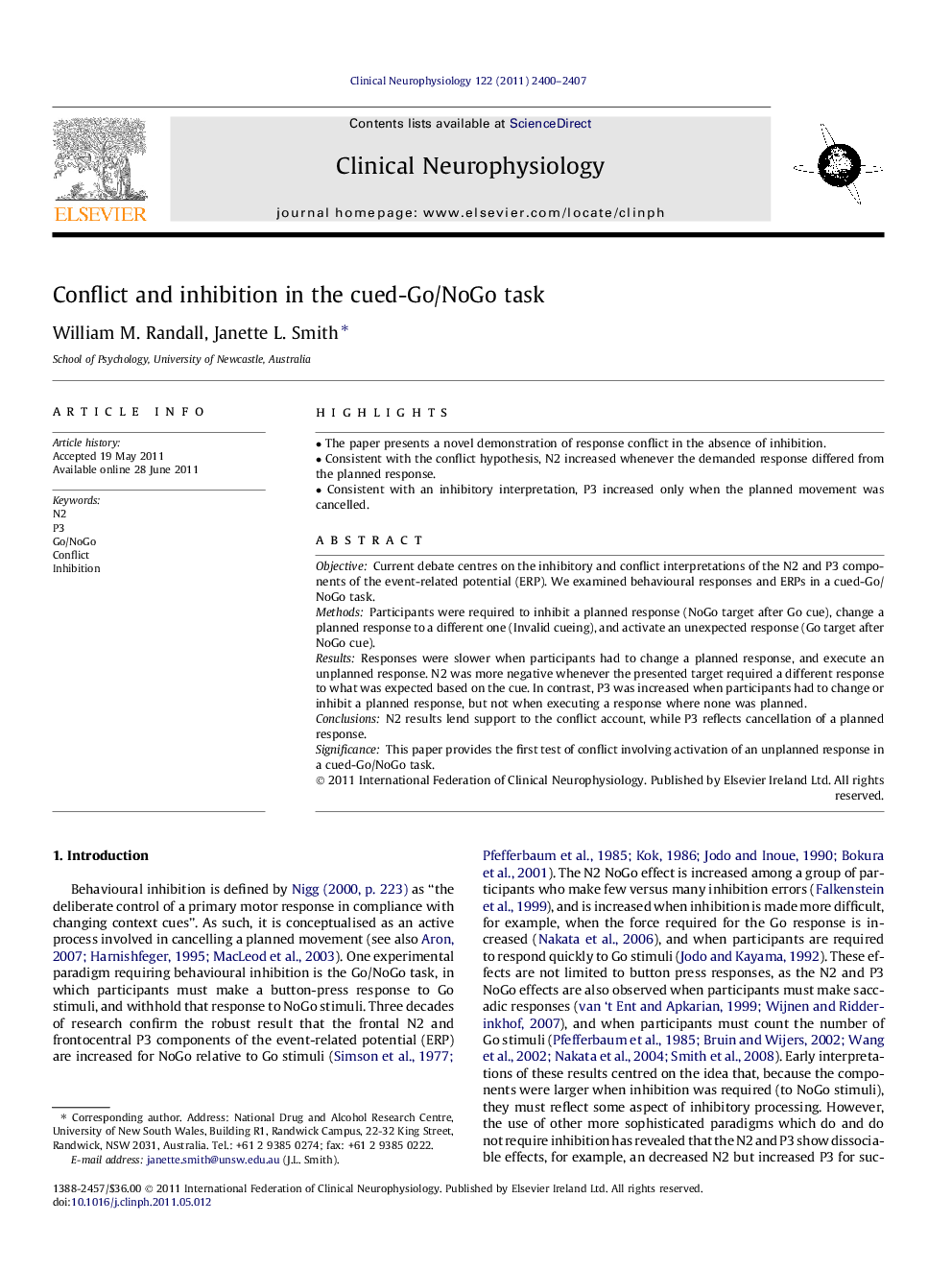| Article ID | Journal | Published Year | Pages | File Type |
|---|---|---|---|---|
| 3043976 | Clinical Neurophysiology | 2011 | 8 Pages |
ObjectiveCurrent debate centres on the inhibitory and conflict interpretations of the N2 and P3 components of the event-related potential (ERP). We examined behavioural responses and ERPs in a cued-Go/NoGo task.MethodsParticipants were required to inhibit a planned response (NoGo target after Go cue), change a planned response to a different one (Invalid cueing), and activate an unexpected response (Go target after NoGo cue).ResultsResponses were slower when participants had to change a planned response, and execute an unplanned response. N2 was more negative whenever the presented target required a different response to what was expected based on the cue. In contrast, P3 was increased when participants had to change or inhibit a planned response, but not when executing a response where none was planned.ConclusionsN2 results lend support to the conflict account, while P3 reflects cancellation of a planned response.SignificanceThis paper provides the first test of conflict involving activation of an unplanned response in a cued-Go/NoGo task.
► The paper presents a novel demonstration of response conflict in the absence of inhibition. ► Consistent with the conflict hypothesis, N2 increased whenever the demanded response differed from the planned response. ► Consistent with an inhibitory interpretation, P3 increased only when the planned movement was cancelled.
